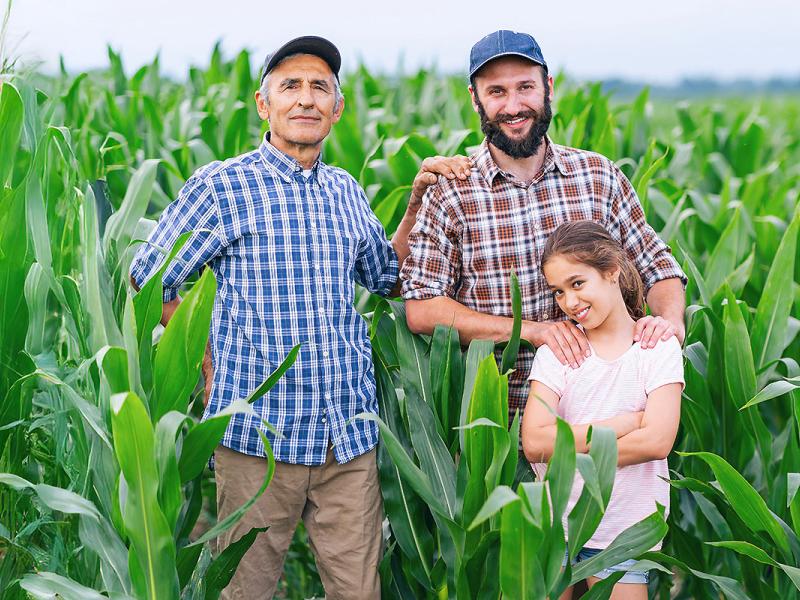Make farm safety a priority
Farms and ranches can be wonderful places for children and youth to live, work and play. However, agriculture is also one of the most dangerous occupations in the U.S., and the only worksite where children of any age may be present. That’s why on a farm, safety must come first, especially for children, since there are more hazards on farms than in a typical backyard.
Supervise children at all times
Always keep an eye on young children in areas with machinery, animals or other potential dangers. Designate an individual whose only job is to watch the kids. This should be someone who isn’t working and can give their full attention.
Create safe play zones
Set up specific areas of the farm as safety zones where children can play. These areas should be away from machinery and livestock, with soft ground cover to help protect them if they fall. According to Safe Kids Pennsylvania, these are the top farm hazards where child injuries occur and should be off-limits:
- Silos – These are particularly dangerous because of gases and running machinery during filling and unloading.
- Grain bins – Grain can act like quicksand, especially during unloading, quickly trapping and potentially drowning children in the bin.
- Farm ponds and manure pits – Make sure that ponds and manure pits have barriers, such as a fence, to keep children out.
- Barn hay-hole openings – Children can fall through hay-hole openings and get seriously hurt or die. Use hay-hole covers to minimize the risk of falls.
Teach farm animal safety
Teach children how to safely interact with farm animals. Always have them ask an adult for permission before going near an animal. Livestock and other animals can be unpredictable. Emphasize the importance of approaching animals calmly, avoiding sudden movements and never teasing or provoking them. Use these tips from Safe Kids PA:
- Talk slowly and softly when going near an animal.
- Don’t surprise animals ─ let them see you first. Approach at a slow, steady pace.
- Before getting too close, reach out your hand so the animal can smell you. If it stays calm, keep moving toward its shoulder.
- If it is safe to pet the animal, do so by holding your hand flat and fingers together to avoid being bitten.
- Be aware of loud noises or uneven ground, which may startle the animal.
- Don’t let kids near mother animals feeding babies, adult males or sick animals because they can be protective and aggressive.
- Stay away from animals during feeding time.
- Don’t let children touch wild animals, especially if they seem sick or act strange.
- Always wash your hands before and after touching animals.
- Learn how to tell if an animal is upset or scared. If it is, it may bite, kick, scratch or run away. Knowing this helps keep you safe and lowers the chance of getting hurt.
Be extra careful around machinery
To stop machines from starting by accident, always take the keys out of tractors, ATVs and other equipment when you’re not using them. Keep the keys in a safe place. Tractors are not toys – they are heavy equipment and can be dangerous. Young teens should never use a tractor without an adult with them. They also should never drive tractors on roads until they are at least 16. Before using any machine, always look around carefully to make sure no children or animals are nearby.



